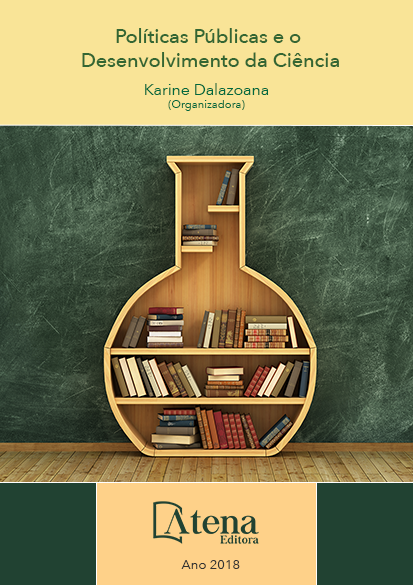
EFEITO ANTIMICROBIANO DE EXTRATOS VEGETAIS EM BACTÉRIAS PRODUTORAS DE β - LACTAMASES DE ESPECTRO ESTENDIDO
Este trabalho objetivou analisar a ação
de extratos de vegetais em bactérias produtoras
de β-lactamases de espectro estendido. Tratase
de um estudo do tipo experimental de
cunho quantitativo. Para sua realização foram
utilizados quatro espécimes vegetais, Piper
aduncum L. (Pimenta de macaco), Turnera
subulata Sm. (Chanana), Phyllanthus niruri L.
(Quebra pedra) e Stryphnodendron adstringens
(Mart. Coville) (Barbatimão). Os testes de
suscetibilidade foram realizados utilizandose
as cepas de Pseudomonas aeruginosa,
Klebsiella pneumoniae, Escherichia coli e
Acinetobacter baumannii, seguindo a técnica
de difusão em ágar. Na análise dos resultados,
evidenciou-se que o extrato de Phyllanthus
niruri L. e Turnera subulata Sm apresentaram
atividade antimicrobiana para as quatro cepas
bacterianas. O extrato de Turnera subulata Sm.
foi o que apresentou maior atividade contra P.
aeruginosa e E. coli, enquanto Piper aduncum L.,
para K. pneumoniae, E. coli e A.baumannii e
não contra P. aeruginosa. O extrato bruto de
Barbatimão não foi efetivo contra A. baumannii.
Esse extrato, após seu fracionamento com
Hexano, obteve-se os melhores halos de inibição
contra P. aeruginosa, K. pneumoniae e E.coli.
Com relação à utilização dos extratos diluídos,
a de 1/10 do Barbatimão e Chanana foi a que
melhor inibiu o crescimento de P. aeruginosa.
Portanto, como base nos resultados obtidos,
evidenciou-se que os extratos de Chanana,
Quebra pedra e Barbatimão, apresentaram
potencial antibacteriano sobre K. pneumoniae,
P. aeruginosa, E. coli e A. baumannii. Após
fracionamento químico dos extratos brutos,
o que apresentou melhor rendimento foi
Stryphnodendron adstringens, fracionado com
hexano.
EFEITO ANTIMICROBIANO DE EXTRATOS VEGETAIS EM BACTÉRIAS PRODUTORAS DE β - LACTAMASES DE ESPECTRO ESTENDIDO
-
DOI: 10.22533/at.ed.95618051212
-
Palavras-chave: Extratos vegetais, microrganismos, teste de suscetibilidade.
-
Keywords: Plant extracts, microorganisms, susceptibility test.
-
Abstract:
This work aimed to analyze the action of plant extracts on bacteria
of extended spectrum β-lactamases. It is an experimental study of the quantitative
nature. Four plant specimens, Piper aduncum L. (Monkey pepper), Turnera subulata
Sm. (Chanana), Phyllanthus niruri L. (Smash stone) and Stryphnodendron adstringens
(Mart. Coville) (Barbatimão) were used. Susceptibility tests were performed using the
strains of Pseudomonas aeruginosa, Klebsiella pneumoniae, Escherichia coli and
Acinetobacter baumannii, following the agar diffusion technique. In the analysis of the
results, it was evidenced that the extract of Phyllanthus niruri L. and Turnera subulata
sm presented antimicrobial activity for the four bacterial strains. The extract of Turnera
subulata Sm. Showed the highest activity against P. aeruginosa and E. coli, while Piper
aduncum L., for K. pneumoniae, E. coli and A.baumannii, and not against P. aeruginosa.
The crude extract of Barbatimão was not effective against A. baumannii. This extract,
after its Hexane fractionation, gave the best inhibition halos against P. aeruginosa, K.
pneumoniae and E.coli. With respect to the use of the diluted extracts, the one of 1/10 of
Barbatimão and Chanana was the one that better inhibited the growth of P. aeruginosa.
Therefore, as a basis for the results obtained, the extracts of Chanana, Quebra stone
and Barbatimão showed that they had antibacterial potential on K. pneumoniae, P.
aeruginosa, E. coli and A. baumannii. After chemical fractionation of the crude extracts,
the one that presented better yield was Stryphnodendron adstringens, fractionated with
hexane.
-
Número de páginas: 15
- Francilene de Sousa Vieira


